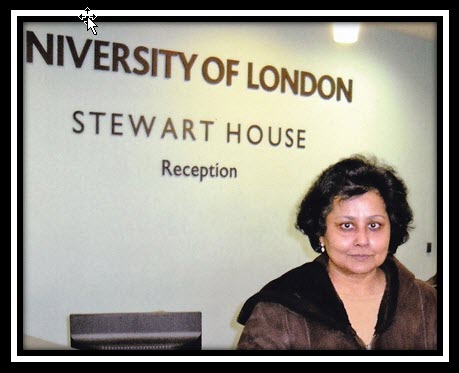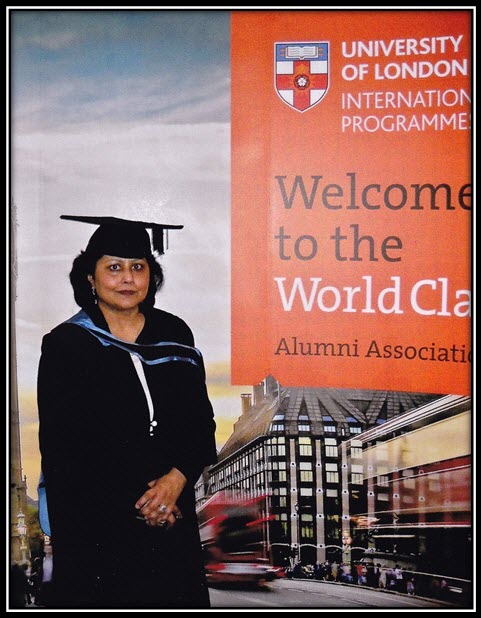Since she graduated from university at the age of 23 with a Bachelor of Laws degree (LL.B. (Hons)), Judicial Justice Susheela Joseph-Tiwary has wanted to obtain her Masters of Laws (LL.M.) degree from the University of London, England. About three and a half years ago, she decided she had to find the time to realize her dream, despite her day to day family and sitting responsibilities. In about December, 2012 she enrolled in that university’s prestigious international LL.M. program.
The program required her to complete 16 modules from four courses within five years using distance learning methods. It entailed self-study with written examinations twice a year. She completed the program and obtained her LL.M. with a merit pass and a specialization in International Business Law in just two and a half years.
When asked how she managed such an accomplishment while working full time as a Provincial Court judicial justice, JJ Joseph-Tiwary gave this explanation.
“My careful choice of subjects like Insurance law, a field in which I had previously worked, assisted somewhat. Additionally, I chose Marine Insurance and Admiralty Law, subjects with a relation to each other and to Insurance. These choices made it possible to specialize either in Common Law or International Business Law.
The similarities in subject matter also gave me an added degree of confidence - Marine Insurance, for instance, is a specialized field of Insurance Law. Content-wise, it was an interesting experience because I had not taken any of these subjects during my undergraduate studies.
New consumer oriented insurance legislation came into force in Britain just before I wrote the exams, and this proved helpful as it gave me greater scope for critical analysis when answering essay questions. Perhaps surprisingly, reading Admiralty case law also helped with my work when I was assigned to hear several Canada Shipping Act matters, some of them quite contentious!

I believe I gained confidence as I went on because I chose to do Human Rights as my final subject, something totally unrelated to my first three courses. This satisfied a long-cherished desire to study human rights, not available to me at the undergraduate level, and as a Provincial Court judicial justice I now had the added incentive that it would help with my daily dealings with the public.
One of the reservations I had in embarking on this challenge was that I have a special needs adult son. I was concerned that my preoccupation with a post graduate course could impact him adversely and that feelings of guilt could ultimately cause me to fail.
However, the program’s use of distance learning modules meant I could pace myself. My only time-lines were the examinations and any constraints that I chose to assume. Most of my studying was done evenings from about 9:00 p.m. to midnight, if the next day was a work day, or to 3:00 or 5:00 a.m. many Fridays and Saturdays. My husband took on responsibilities for the home and fortunately insisted I take breaks from my books.
I found unexpected support that belied my earlier fears. My special needs son volunteered to print my reading material, saving me a great deal of time. He was particularly helpful when, part way through the course, a prescribed text was changed to a voluminous one available only online. Time and again, he helped me with software challenges, and was also game to scout some required and further readings on the internet and paste them on the desktop for easy perusal of content.

In the end, it was time well spent and a pleasant experience to have obtained the Master of Laws. My only regret is that I did not attempt more human rights courses. The University of London has continuously expanded its options available to students. Just recently, following student feedback, online tutorials have been introduced, providing students the ability to pose questions.”
Although Judicial Justice Joseph-Tiwary makes it sound easy, achieving her goal required discipline and dedication. The Provincial Court is proud of her accomplishment.

